Have you ever woken up unable to move, feeling a heavy weight pressing down on your chest, while terrifying hallucinations danced before your eyes? If so, you may have experienced the phenomenon known as sleep paralysis. This sleep disorder affects millions of people worldwide, leaving them trapped in a state between wakefulness and sleep, paralyzed and vulnerable to a barrage of frightening visions. But what exactly causes sleep paralysis? Is it a paranormal occurrence, or is there a scientific explanation behind it? In this article, we will delve into the fascinating world of sleep paralysis, exploring the latest scientific research to uncover the mysteries behind this spine-chilling experience. From the role of REM sleep to the impact of stress and sleep disorders, we will unravel the complex web of factors that contribute to sleep paralysis. So, prepare to embark on a journey into the realm of the unknown as we shed light on the science behind sleep paralysis.
What is sleep paralysis?
Sleep paralysis is a phenomenon that occurs when a person is temporarily unable to move or speak while transitioning between sleep and wakefulness. This state of paralysis can last for a few seconds to a few minutes and is often accompanied by vivid hallucinations and a sense of impending doom. During sleep paralysis, the brain is awake and aware, but the body remains in a state of temporary muscle atonia, or paralysis, which is a normal part of the sleep cycle. This paralysis is believed to be a protective mechanism that prevents us from acting out our dreams and potentially injuring ourselves or others.
Sleep paralysis can occur during two distinct stages of sleep: hypnagogic sleep paralysis, which happens when falling asleep, and hypnopompic sleep paralysis, which occurs when waking up. Hypnagogic sleep paralysis is typically accompanied by vivid dream-like hallucinations, while hypnopompic sleep paralysis often involves a sense of pressure on the chest and a feeling of being watched or haunted by a presence.
The experience of sleep paralysis
Simply put, sleep paralysis is scary. Imagine waking up in the middle of the night, unable to move a muscle. Your mind is alert, but your body is completely paralyzed, leaving you defenseless and vulnerable. As you lie there, you begin to sense a presence in the room, even though you know you are alone. Your heart races, and a wave of fear washes over you as you struggle to break free from the grip of paralysis. This is the terrifying reality of sleep paralysis.
During an episode of sleep paralysis, individuals often report a variety of hallucinations that can range from mildly unsettling to downright terrifying. These hallucinations can take the form of shadowy figures, demonic entities, or even alien abductions. The vividness and realism of these hallucinations can be so intense that it becomes difficult to distinguish them from reality, further exacerbating the fear and distress experienced during sleep paralysis.
The science behind sleep paralysis
Sleep paralysis occurs when there is a disruption in the normal transition between sleep stages, particularly during the rapid eye movement (REM) sleep phase. REM sleep is the stage of sleep where most dreaming occurs, and during this phase, the brain is highly active, while the body is in a state of muscle atonia. This muscle atonia is controlled by the brainstem, which inhibits motor neurons from sending signals to the muscles, effectively paralyzing them. This paralysis is crucial for preventing us from physically acting out our dreams and potentially harming ourselves or others.
However, in the case of sleep paralysis, this muscle atonia persists even as the individual wakes up or falls asleep, causing a disconnect between the brain and the body. This disconnect can lead to feelings of paralysis, as well as the vivid hallucinations commonly associated with sleep paralysis.
Causes of sleep paralysis
While the exact cause of sleep paralysis is still not fully understood, several factors have been identified as potential triggers for this sleep disorder. One of the primary factors is disrupted sleep patterns, such as irregular sleep schedules or sleep deprivation. These disruptions can interfere with the normal sleep cycle, increasing the likelihood of experiencing sleep paralysis.
Stress and anxiety are also closely linked to the occurrence of sleep paralysis. High levels of stress can disrupt the quality of sleep and trigger episodes of paralysis. Additionally, certain sleep disorders, such as narcolepsy and sleep apnea, have been found to be associated with an increased risk of sleep paralysis.
Sleep paralysis and the brain
Research has shown that sleep paralysis is closely tied to the functioning of the brain, particularly the areas responsible for regulating sleep and wakefulness. Studies using brain imaging techniques have revealed abnormalities in the prefrontal cortex, the region involved in decision-making and self-awareness, among individuals who experience sleep paralysis. These abnormalities suggest that there may be a neurological basis for the occurrence of sleep paralysis.
Furthermore, neurotransmitters such as serotonin and dopamine, which play a crucial role in regulating sleep and mood, have also been implicated in sleep paralysis. Imbalances in these neurotransmitters may contribute to the disrupted sleep patterns and hallucinations experienced during sleep paralysis.
Sleep paralysis and sleep disorders
Sleep paralysis is often associated with other sleep disorders, most notably narcolepsy. Narcolepsy is a neurological disorder characterized by excessive daytime sleepiness and sudden, uncontrollable episodes of sleep. Individuals with narcolepsy are more likely to experience sleep paralysis, as the disrupted sleep-wake cycle and rapid transitions between sleep stages make them more susceptible to these episodes.
Sleep apnea, a condition characterized by interrupted breathing during sleep, has also been linked to sleep paralysis. The frequent awakenings and oxygen deprivation associated with sleep apnea can disrupt the normal sleep cycle and increase the likelihood of experiencing sleep paralysis.
Sleep paralysis and hallucinations
The hallucinations experienced during sleep paralysis can be vivid and terrifying, often involving the perception of threatening figures or supernatural entities. These hallucinations are thought to be a result of the brain’s attempt to make sense of the sensory input it receives during the state of paralysis. When the brain is in a state between sleep and wakefulness, it can generate dream-like images and sensations that become incorporated into the individual’s perception of reality.
The specific content of these hallucinations is influenced by a variety of factors, including cultural beliefs, personal experiences, and individual fears. This explains why the hallucinations experienced during sleep paralysis can vary widely among different individuals, with some reporting encounters with demons or ghosts, while others describe more benign or abstract phenomena.
Coping with sleep paralysis
Experiencing sleep paralysis can be a frightening and unsettling experience, but there are several strategies that can help individuals cope with and manage these episodes. One of the most effective approaches is to establish a regular sleep routine and prioritize good sleep hygiene. This includes maintaining a consistent sleep schedule, creating a comfortable sleep environment, and avoiding stimulants such as caffeine or electronic devices before bedtime.
Stress management techniques, such as relaxation exercises or meditation, can also be beneficial in reducing the frequency and intensity of sleep paralysis episodes. By addressing the underlying stress and anxiety that contribute to sleep disturbances, individuals may experience fewer episodes of sleep paralysis.
Treatment options for sleep paralysis
In most cases, sleep paralysis is a harmless and temporary condition that does not require specific treatment. However, if sleep paralysis becomes frequent or severely impacts an individual’s quality of life, medical intervention may be necessary. Treatment options for sleep paralysis typically focus on addressing the underlying sleep disorder or improving sleep patterns.
In some cases, medications such as antidepressants or anti-anxiety drugs may be prescribed to help regulate sleep and reduce the occurrence of sleep paralysis. Cognitive-behavioral therapy (CBT) has also shown promise in managing sleep paralysis by addressing the negative thought patterns and fears associated with the condition.
Conclusion
Sleep paralysis is a fascinating and often terrifying phenomenon that has captured the attention of scientists, psychologists, and individuals worldwide. While the exact causes of sleep paralysis remain elusive, research has shed light on the complex interplay between sleep stages, brain function, and environmental factors that contribute to this enigmatic sleep disorder. By understanding the science behind sleep paralysis, we can begin to demystify this eerie experience and develop strategies to cope with and manage its effects. So the next time you find yourself trapped in the ethereal realm between sleep and wakefulness, take comfort in knowing that there is a scientific explanation for the spine-chilling visions and paralysis you may encounter.

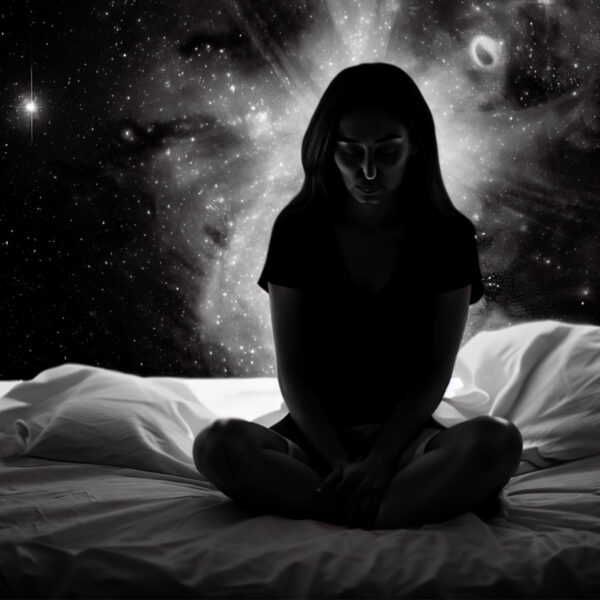
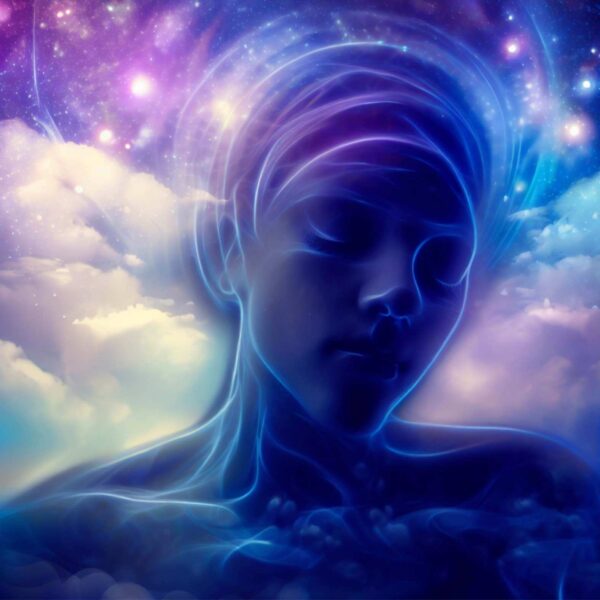

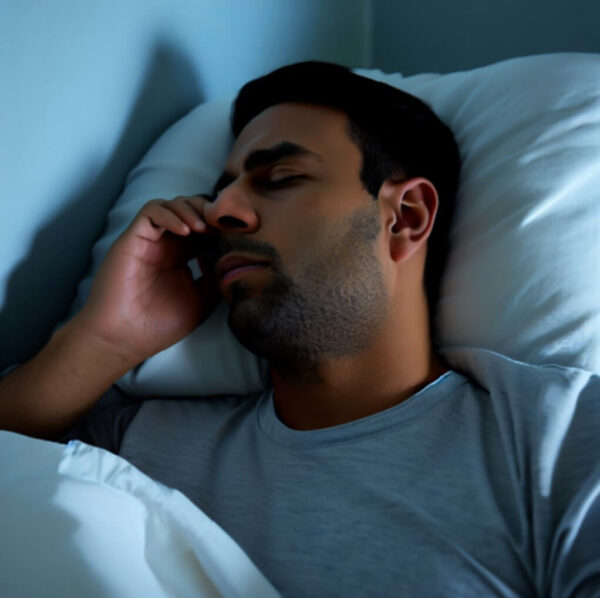
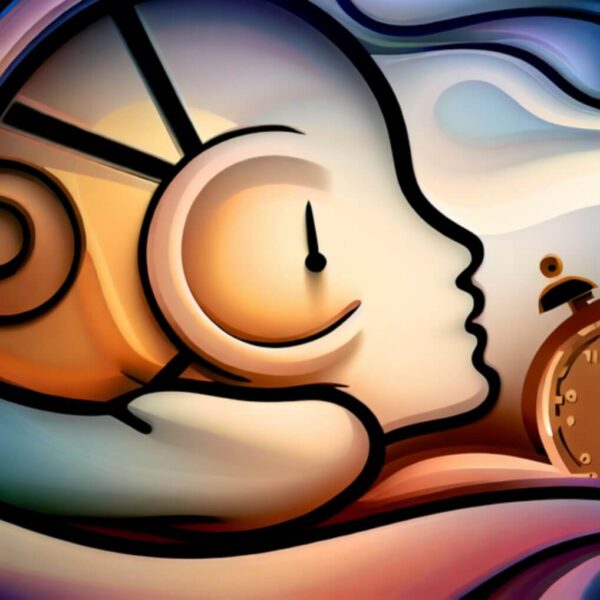
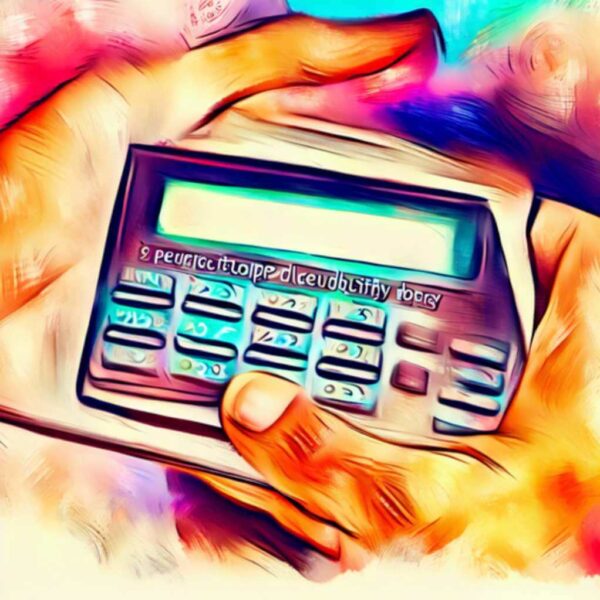
One Response
Well thank god there are other people who have gone through this! Sleep paralysis is scary and I’ve had it happen to me a few times now. Just in the past year, each time it happens it feels as though just as terrifying as the last. It’s like I’m trapped in this limbo between the realms of sleep and being awake. My mind becomes crystal clear, but my body refuses to respond or move. The weight on my chest is almost unbearable, like there is this thing holding me down. The worst part are the visuals and hallucinations. Once, I saw a shadowy figure at the foot of my bed, just watching me. I screamed in my head, but no sound came out. I’ve read about the scientific explanations behind it and know that it’s my brain playing tricks on me but that doesn’t make the experience any less horrifying. I’ve tried adjusting my sleep habits to prevent it, but every time it happens, it leaves me afraid to go back to sleep. I truly wouldn’t wish it on anyone.